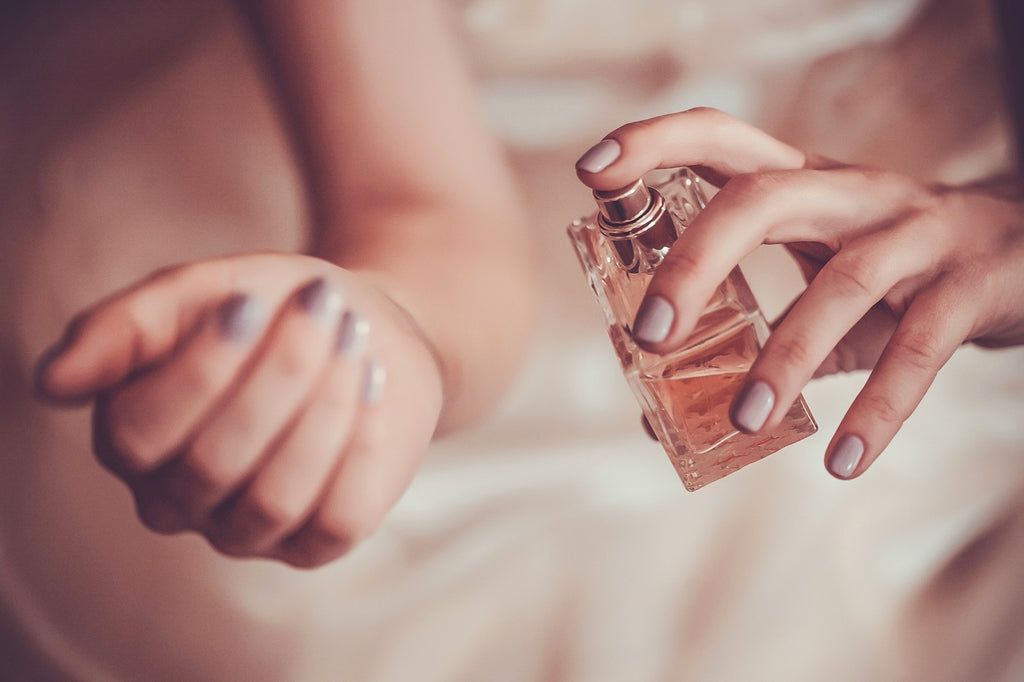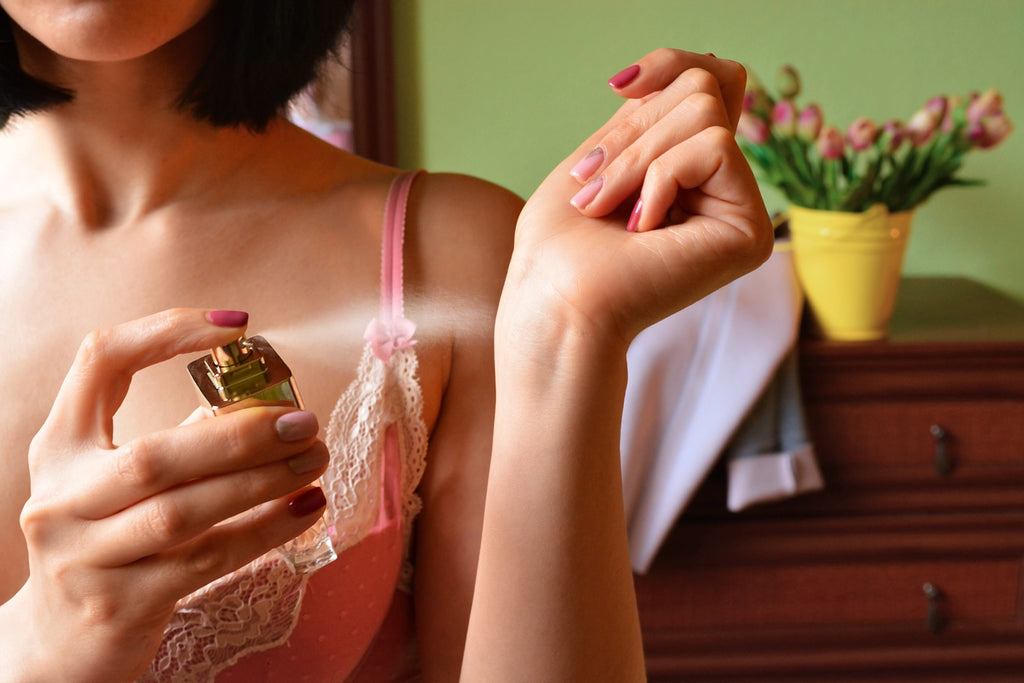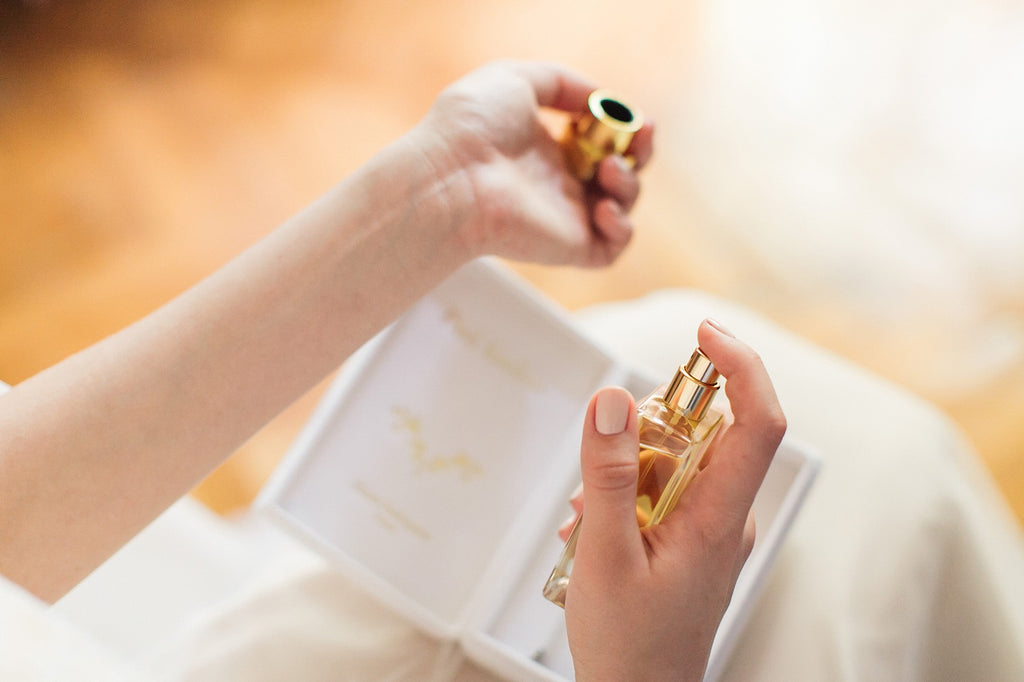Ihr Warenkorb ist leer
Buy one get one free this weekend! Use code: BOGOF
Buy one get one free this weekend! Use code: BOGOF
Cologne vs. Perfume: Understanding The Key Differences

März 13, 2024 6 min lesen.
Decided it's time to introduce a signature scent into your life? Or maybe you've not updated your fragrance in the last decade and want to change things up? Either way, you're going to have to do some searching and shopping. But with terms like 'cologne' and 'perfume' popping up, you might find it difficult to figure out the differences and determine which ones are best for you.
In this article, we have all the answers ready and waiting for you. Below, we're going to explore cologne vs perfume, what the differences are, which one you should use, and how to find the perfect fragrance type for you.
So, let's get started!
Cologne vs perfume: What's the difference?
Let's start off easy. What are the main differences between cologne and perfume? Put simply, brands tend to label a fragrance an eau de cologne when it has low concentrations of essential oils in it. On the other hand, boxes that say 'eau de parfum' are mostly made from aromatic essential oils, absolutes, or synthetic aromatic compounds of much higher concentrations than colognes.
Many people may argue that another difference between the two is that colognes are for men and perfumes are for women - but that isn't always the case. While that might be true in terms of who the two fragrances are more heavily marketed towards, they can both be used by both genders.
Composition and strength
We've already mentioned the concentrations being a big difference between cologne and perfume - and that's how most people distinguish them. This can strongly affect the composition and strength.
The fragrance composition in cologne
As said, colognes have low concentrations of essential oils compared to perfumes. That is because their overall concentration typically ranges between 2% and 5%. This means that the strength of the cologne isn't quite as strong. No matter the fragrance, the composition will contain little essential oils, which means when you place it on your body, it won't overpower you or anyone surrounding you. It's the best option when you want a light scent, and therefore, it's better to wear day-to-day instead of for a special occasion or big night out.
The fragrance composition in perfume
Perfumes are different from colognes in terms of composition, and with an average essential oil concentration of around 15%, going up to 30%, it's no surprise that these fragrances are much stronger. You only need a small spritz of perfume to experience the strong smell of the scent, and it will be much more identifiable by you and the people around you.
Finding a signature perfume that you want to use for special events is good for both men and women and while you can use them daily, it can become a bit overpowering at times.

Scent intensity and longevity
While the main difference between cologne and perfume tends to be the composition and concentration of essential oils, some people prefer to choose between the two based on the scent intensity and longevity.
Scent intensity differences between cologne and perfume
As we've mentioned regarding strength, you're much more likely to get an intense scent from a perfume compared to a cologne. This is because perfumes have a much higher concentration of fragrance oils. While the scent is no doubt going to be a pleasant one, it can overpower those who have a sensitive sense of smell.
For a much smaller dose, you will experience the same intensity of a fair number of spritzes of cologne. This makes it perfect for those who want something stronger or want something a bit more intense for a special event. However, cologne is the way to go for a more subtle day-to-day fragrance.
Longevity differences between cologne and perfume
Since eau de parfums have a much stronger scent and a higher level of intensity, it's no surprise that they last much longer throughout the day, too. If you are going out and don't want to lug your perfume bottle around with you all night, then it's the perfect solution as you won't need to top up, and you'll be smelling fresh and luxurious the whole time.
However, if you just want a quick top-up that only lasts around 2-4 hours at most, then you'll just want to place a couple of spritzes of cologne on you and go about your day.

Usage and application
So, you now know the differences between the smell, composition, strength, and longevity of perfumes and colognes, but are there any differences in how you apply them? We have the top tips for you below:
Tips for applying cologne
- Always remember that less is more with cologne. The whole point is to offer a subtle scent, so don't apply too much to try and create something more overwhelming.
- Target your pulse points, such as your wrists, neck, and behind the ears.
- Always spray from a distance - around 6-8 inches away from your skin - to allow for a more even distribution.
- Don't be tempted to rub the cologne into your skin because this might alter the scent.
- Consider using a scented body wash or lotion in the same scent as your cologne for a longer-lasting fragrance.
Tips for applying perfume
- Always apply your perfume to clean, moisturised skin to ensure it lasts longer. The best time to apply is straight out of a shower.
- Spray strategically on your pulse points like you would with a cologne, such as your wrists, neck, and behind the ears.
- Don't overspray your perfume. It is already a powerful scent, so you don't need too much of it.
- Spritzing your perfume onto your hair or hairbrush can provide you with a more subtle scent of perfume that stays with you for longer.
- Store your perfume in a cool, dry place away from direct sunlight to preserve its intensity.

Gender and marketing: Is cologne for men or women?
We already brought up the topic of gender briefly earlier in this article, and that's because it's mentioned a lot when cologne and perfume are brought up. Many people believe that cologne is for men and perfume is for women - and it can't be changed. However, this idea is wrong.
The only reason people believe this is because of the marketing. A brand might put gender-specific labelling on one of these fragrance products, but that doesn't mean the other gender can't use it. A woman can easily wear cologne without anything bad happening. After all, it's just a scent - and most people won't be able to notice that it has been marketed for men when you're actually wearing it.
Exploring gender-neutral fragrance options
While every fragrance is technically 'gender-neutral', as everyone can wear them, more fragrances are marketed specifically as gender-neutral. You can spot these quite easily as they usually come in unisex bottles, and they might be mentioned somewhere on the packaging.
However, you can also identify gender-neutral fragrances yourself. For example, you can focus on the notes and look for scents that are not traditionally associated with any specific gender. This includes things such as citrus, herbal, or woody notes.
What are the different fragrance types?
While cologne and perfume are the two 'main' fragrance types, you can also find various sub-categories among them, including the following:
- Pure perfume - also known as extrait de parfum, which is the most potent form of perfume on the market.
- Eau de parfum (EDP)- has the second-highest concentration of fragrance oils and is one of the most common fragrances you'll find.
- Eau de toilette (EDT) - a lighter spray composition perfume that is popular for everyday wear.
- Eau de cologne (EDC) - the main form of cologne that is lighter than any perfume and only lasts a couple of hours.
- Eau fraiche - The most diluted form of fragrance that has a small essential oil concentration of as little as one per cent.
Conclusion
Perfumes and colognes both have their own positives and when you might want to use them - but they do have quite strong differences. In regards to scent strength and longevity, you will want to choose perfume for something stronger and longer lasting and cologne for something a bit more day-to-day.
If you want to find the perfect perfume or cologne for you, then The Fragrance World is here to help. We have gender-neutral fragrances for you to choose from based on the scent of your choice. Browse our selection today.
Subscribe
Sign up to get the latest on sales, new releases and more …

